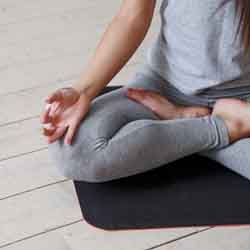
More evidence that low-calorie sweeteners are bad for your health
Studies show that artificial sweeteners can raise the risk of hypertension, metabolic syndrome, type 2 diabetes and heart disease, including stroke.

Natural Health News — Scientists have discovered for the first time that the rhythm of breathing creates electrical activity in the human brain that enhances emotional judgments and memory recall.
The precise effects on behaviour, they have found, depend critically on whether you inhale or exhale and whether you breathe through the nose or mouth.
The researchers from Northwestern University first discovered these differences in brain activity while studying seven patients with epilepsy who were scheduled for brain surgery.
A week prior to surgery, a surgeon implanted electrodes into the patients’ brains in order to identify the origin of their seizures. The recorded electrical signals showed activity, in areas of the brain where emotions, memory and smells are processed, fluctuated with breathing.
This discovery led scientists to ask whether cognitive functions typically associated with these brain areas could also be affected by breathing.
» Scientists have found that how we breathe affects different areas of the brain differently.
» Inhalation and exhalation have different effects on the brain with inhalation acting to synchronise brain oscillations across the limbic network.
» In addition, the kind of nasal breathing associated with yoga or mediation, was found to sharpen perceptions in parts of the brain that process emotions such as fear.
Processing fear
So, as a next step, scientists set up series of sets tests to look more deeply into how breathing affected fear and memory processing in the brain.
In the first tests the participants were presented with pictures of faces showing expressions of either fear or surprise, and were asked to make rapid decisions on which emotion was being expressed. How they were breathing was monitored throughout the experiment.
When faces were encountered during inhalation, the participants recognised them as fearful more quickly than when faces were encountered during exhalation. This was not true for faces expressing surprise.
These effects diminished when subjects performed the same task while breathing through their mouths. Thus the effect in the amygdala area of the brain responsible or processing fear, was specific to fearful stimuli during nasal breathing only.
Sharper memory
In an experiment aimed at assessing memory function – tied to the hippocampus – the same subjects were shown pictures of objects on a computer screen and told to remember them. Later, they were asked to recall those objects. Researchers found that recall was better if the images were encountered during inhalation.
“One of the major findings in this study is that there is a dramatic difference in brain activity in the amygdala and hippocampus during inhalation compared with exhalation,” said lead author Christina Zelano, assistant professor of neurology at Northwestern University Feinberg School of Medicine. “When you breathe in, we discovered you are stimulating neurons in the olfactory cortex, amygdala and hippocampus, all across the limbic system.”
Evolutionary and emotional advantage
The findings, published in the Journal of Neuroscience imply that rapid breathing may confer an advantage when someone is in a dangerous situation, said Zelano.
“If you are in a panic state, your breathing rhythm becomes faster. As a result you’ll spend proportionally more time inhaling than when in a calm state. Thus, our body’s innate response to fear with faster breathing could have a positive impact on brain function and result in faster response times to dangerous stimuli in the environment.”
But another potential insight from the research relates to the basic mechanisms of meditation or focused breathing. “When you inhale, you are in a sense synchronising brain oscillations across the limbic network,” she noted.

Please subscribe me to your newsletter mailing list. I have read the
privacy statement